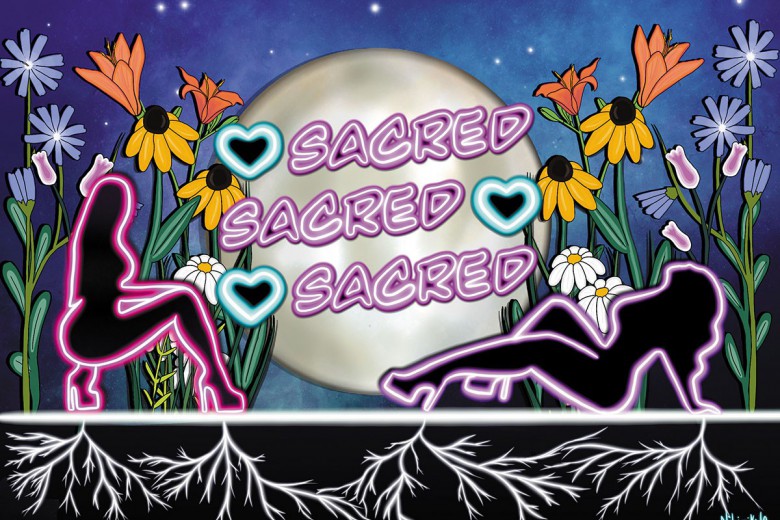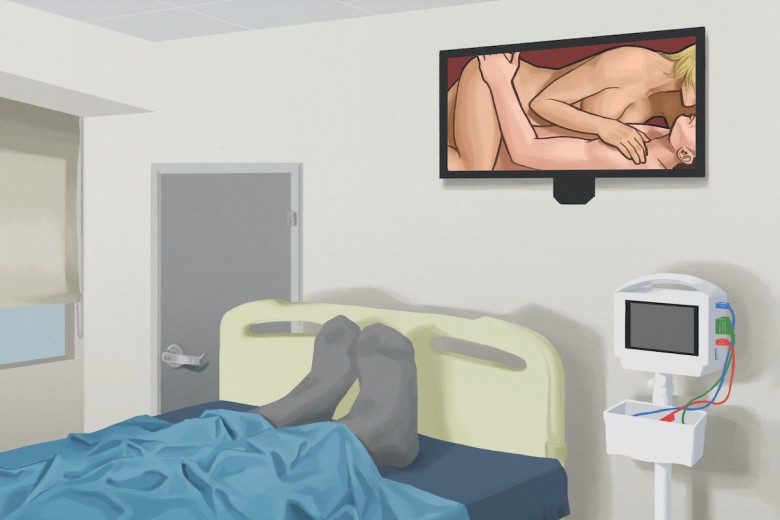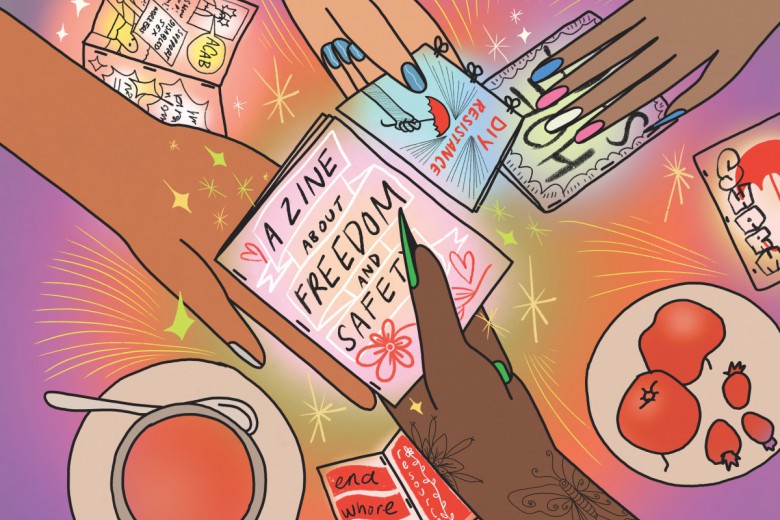What does it mean to be transgendered? If you are born in a body that fits your internal idea of who you are and what your gender is, you have probably never thought about it. But more people than you might imagine face this issue. Someone you know and care about may be struggling with it today. Alternating between the journalistic and the personal, drawing on the experiences of a female to male transgendered person, we hope this article will facilitate greater understanding of the struggles that transgendered people face.
When you are transgendered, you feel like you don’t fit anywhere. At least, that’s how I feel. When I was younger I prayed to God every night that I would wake up a boy. Every morning I would check, and be thoroughly disappointed. I don’t know what made me transgendered, but I know it certainly horrified my parents. They adopted me, wanting a girl, and I just didn’t live up to their plans. Oh, the visions they had of pink ruffles and big blue eyes, blonde curls and shopping trips for grad dresses, trips to the mall for fancy hair-dos and manicures! How proud they would be some day to walk that daughter down the aisle and marry her off to a handsome man who would provide brilliant, blue-eyed grandchildren for them. Well, I was blue-eyed, but that’s where it stopped.
The term transgender is an umbrella term that encompasses anyone whose gender identity (appearance, behaviour and characteristics) differs from the gender stereotypes associated with their birth sex, or whose birth sex is indeterminate at birth. While some transgendered people are transsexual – identifying fully with the opposite gender and often undergoing sex reassignment surgeries – other transgendered people do not entirely identify with either sex, and might use a variety of terms to identify themselves, including gender variant, gender queer, and boy-girl to describe themselves. Transgendered people who do not “pass” as either sex face discrimination, harassment, and social exclusion, as well as internalized transphobia.
Forced on occasion to wear dresses to school, I would hide my preferred jeans and t-shirt in my bag and change in the back alley on the way to school. I fought bitterly over hair-cuts. I fought bitterly over everything. I was told what a big disappointment I was pretty much every day of my childhood and throughout my teenage years – and into adulthood as well. I have emotional scars, and physical ones, from self-abuse. The scars reflect how I felt about myself and how the people who should have loved me actually saw me. My family and I parted ways when I was in my late twenties. Not having a family anymore has led me to seek security at all costs. My need to be loved and approved of is sometimes a void too deep for anyone or anything to fill, and it’s sometimes too much for the people around me.
A lack of acceptance and emotional support from family and friends often leads transgendered people to have high incidence of depression, anxiety, and substance abuse. Transgendered youth in particular have been shown to have a higher rate of parental abuse, suicide, and attempted suicide than their non-transgendered peers. This lack of support at an early age is often compounded by the discrimination transgendered people face as adults.
One of the most difficult barriers I face in my daily life is something that most people take completely for granted: the public washroom. It is a daily horror for me. I’ve been in a women’s change room and had security called on me more than once. I don’t feel safe going into a men’s washroom or change room, and often when I go into a women’s washroom or change room I get challenged as to the appropriateness of my presence there at best, and at worst I get screamed at or have the cops called. I have gotten to the point where I just don’t go into gendered spaces. This leads to much crossing of legs and rushing to get home. Now when I go to my local YMCA, I just dress in my workout clothes beforehand and jam my stuff into the wallet lockers at the front. It’s not just about the inconvenience – it’s about the fear of violence if someone takes my presence as being particularly offensive.
As a result of the socialized gender roles that guide our everyday behaviour, a person who is not readily identifiable as a man or a woman is often met with fear and discomfort. This fear and discomfort may be expressed in many ways: by awkwardness, stares, denial of service, screams, or violence. Beyond the bathroom, transgendered people face difficulty obtaining employment and getting access to health care services. Many transsexuals are fired from work when they tell their employer that they will undergo sex reassignment surgery. Socioeconomic disadvantage often leads male-to-female transgendered people to become engaged in sex work, where they face a high risk of violence and contracting HIV.
While transgendered people face discrimination similar to other minority groups in our society, they, unlike many other groups, do not have special designation in Canada’s legislation. Most provinces’ and territories’ Human Rights legislation, the Canadian Human Rights Act, and hate crime designations within Canada’s Criminal Code do not include specific language protecting transgendered people. This invisibility before the law leaves transgendered people with more limited legal recourse in the face of discrimination. Addressing this gap, Manitoba and the Northwest Territories have adopted additional language explicitly providing protection from discrimination on the basis of “gender-determined characteristics and circumstances” and “gender-identity” respectively.
I’m lucky. I’ve got a pretty good job, in a union, so I’m not that easy to fire. And I can afford surgery. I know lots of people who are so uncomfortable in their bodies. They need surgery but they don’t have the funds. In some places there are ways to get funding, or sympathetic doctors who will bend the rules or the criteria so that people can, for instance, have their breasts removed under the guise of breast reduction for back pain. But for some people there is nothing available and they try to get back-door surgery, just like people try to get back-door abortions, with just as terrible results. Or they just live in agony.
In Saskatchewan, sex reassignment surgery is insured only for patients who have surgery recommended by the Clarke Institute in Toronto. The Clarke Institute – once associated with efforts to “cure” homosexuality – continues to apply regressi ve and limited notions of sexuality and gender to determine access to medical services. The facility rejects 90 percent of clients. Access to services is similarly limited in other provinces. Ontario, for instance, has further restricted access by de-listing sex reassignment surgeries altogether.
However much I’ve faced in my life, I’ve learned so much more by being who I am than by trying to fit all the norms. And things are improving for trans people all the time. There is a lot more available in terms of medical help, and as we begin to have more of a presence in the media and in popular culture, our acceptance will be even greater.
Across Canada, people are challenging the discrimination of transgendered people. A 2003 British Columbia Human Rights Tribunal, for instance, ruled that female-to-male sex change surgery performed in the United States should be covered by provincial health insurance, and there is a similar appeal underway in Ontario. Pressure is building to include provisions protecting transgendered people in human rights codes. Slowly, services are becoming more inclusive – one example being the installation of gender-neutral bathrooms in some public facilities. Union activism has also been successful in forcing the inclusion of transgender rights in employment contracts: a CUPE local at York University recently negotiated ground-breaking language on Transsexual Transition Leave. And with greater public awareness, many people are becoming more supportive and understanding of their transgendered friends, family and co-workers.
For more information
- Transgender Equality: A Handbook for Activists and Policy Makers by Paisley Currah and Shannon Minter
- Expanding our Understanding of Gendered Violence: Violence Against Trans People and Loved Ones by Joshua Mira Goldberg and Caroline White
Anonymous, Suzanne and Tyler all live and work in Saskatoon, where they are involved in LGBT and other social justice struggles.
Update, July 28, 2022: The name of one of this article's authors has been changed to "Anonymous," out of concern for their privacy and safety.





